Dr. Elvis Imafidon – School of Oriental and African Studies (SOAS), University of London, UK
Dr Elvis Imafidon, School of Oriental and African Studies (SOAS), University of London | Keynote LICOT-WASO Conference 2023
LICOT-WASO Conference 2023, 28/29 June, Accra, Ghana
First graduation of a LICOT-WASO PhD Fellow
James Kwabema Bomfeh Jnr. successfully defends his thesis at the University of Cape Coast
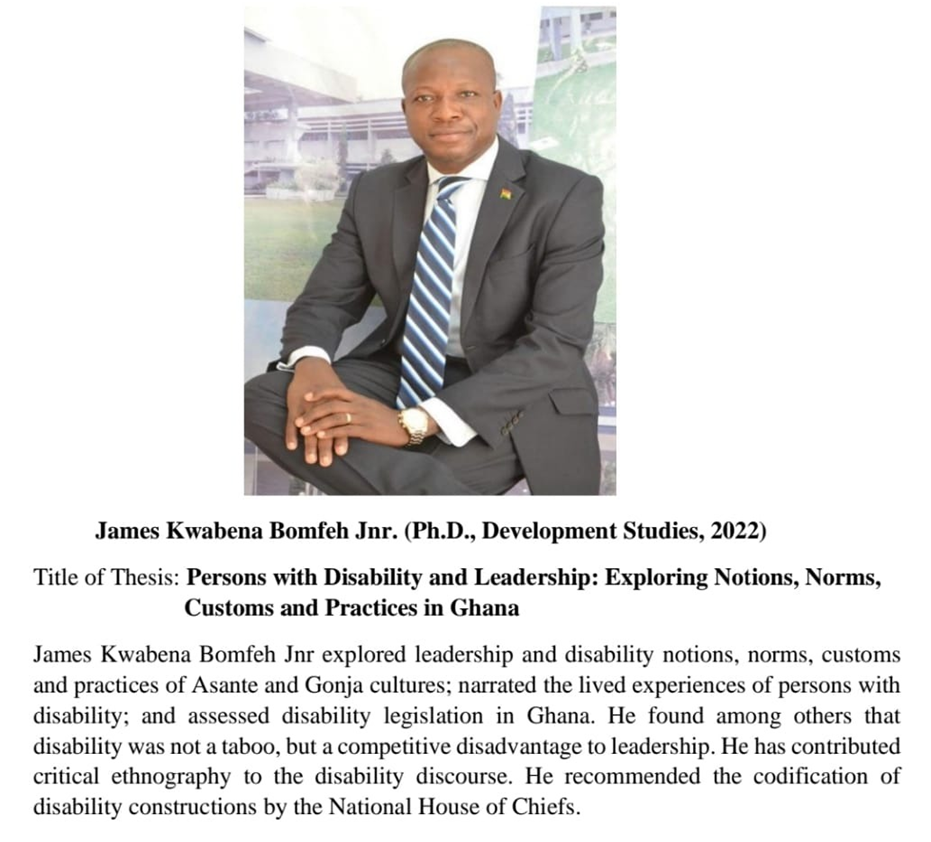
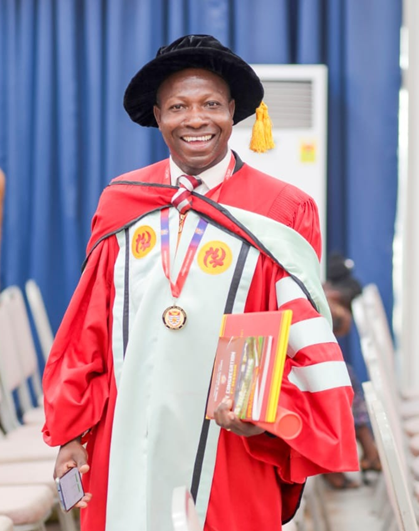
Life Course Theory and Disability in West African Societies – Conference Report

KEYNOTE 1 │ African Philosophy of Difference and Disability
Dr Elvis Imafidon, School of Oriental and African Studies (SOAS), University of London, UK
KEYNOTE 2 │ Disability and the Life Course
Prof. Dr Yirgashewa Bekele Abdi, Addis Ababa University, Ethiopia
LICOT-WASO Digital Conference | Tuesday 5 July 2022 | 10 a.m. – 5 p.m. CEST
The 2022 LICOT-WASO international conference invites interested scholars, practitioners and students to discuss the relevance of life course theory for studying disability and inclusion in West African societies.

08 July 2022 │ LICOT-WASO TEAM VISITS ZPE
During a visit of the Ghanaian LICOT-WASO research group to University of Siegen, the Ghanaian researchers visited the Centre for Planning and Development of Social Services (ZPE) for a ‘Scientific Kaffeeklatsch’. Following an official welcome by the ZPE Board represented by Lena Bertelmann and an introduction to the research centre by Managing Director Prof. Johannes Schädler, ZPE researchers shared current projects in an open market format. Accompanied by coffee and cake, scholars learned to know each other and their work, resulting in a vivid dialogue on shared research interests and perspectives.
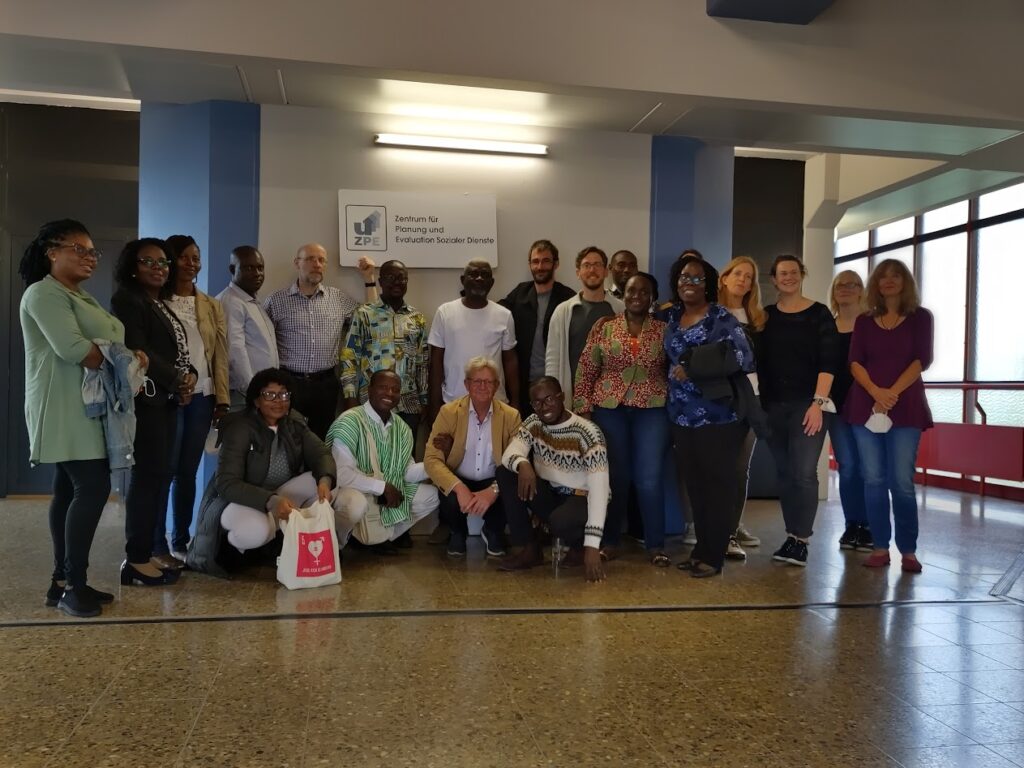
15 February 2022 │ Interim Workshop & Steering Group Meeting
From 7 to 8 February, the LICOT-WASO team including the steering group met at Legon Campus / University of Ghana. The eight doctoral students presented their current state of work and discussed content-related and methodological questions about their research with the entire group. In addition, they presented the experiences and results of their Experiential Learning Phase, which the group completed at the Ghana Federation of Disability Organisations (GFD) from June to November 2021. In addition to subject-specific tasks related to their research areas, the LICOT-WASO doctoral students supported GFD in finalising the official civil society organisations alternative report on the implementation of the UN Convention on the Rights of Persons with Disabilities (CRPD) in Ghana. The steering group focused on the planning for 2022. In addition to the data collection phases of the PhD students, this included the planning of the LICOT-WASO Interim Conference in July 2022 and the publication of the LICOT-WASO edited Reader “Perspectives on disability and life course in West-African Societies” in early 2023.
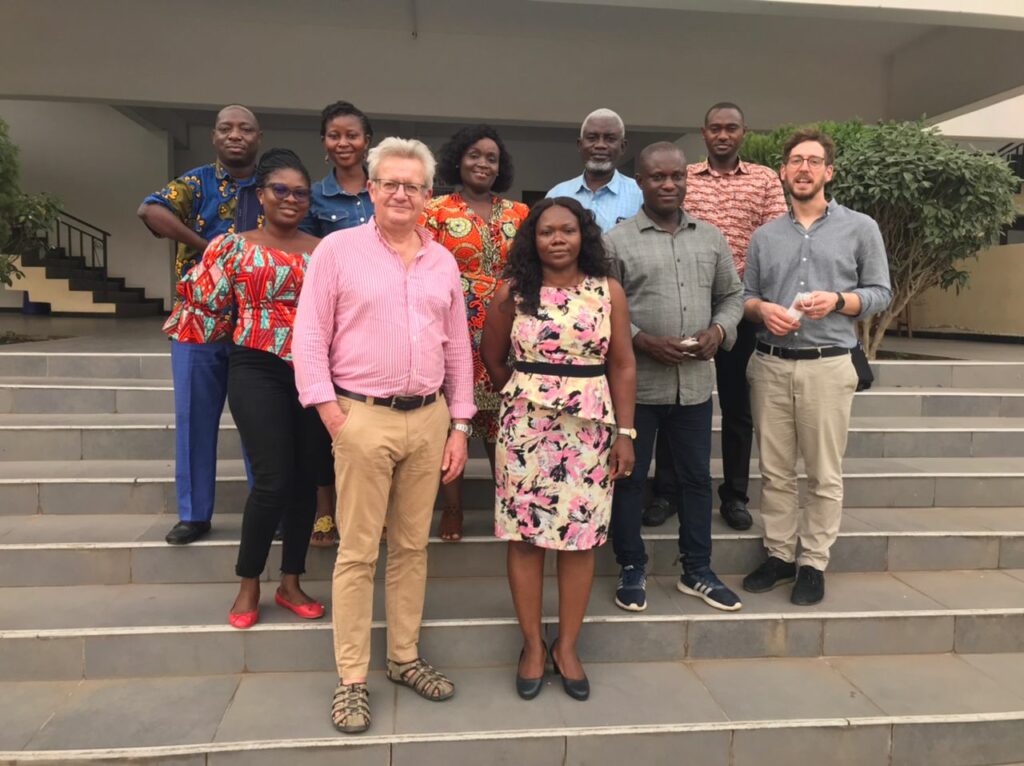
20 December 2021 │ ‘meet the research group’
Insights into the research activities of the LICOT-WASO team
We continue the ‘meet the research group’ series with Kofi Asihene. Kofi isa second year PhD candidate at the Institute of African Studies, University of Ghana. His principal research interest lies in the fields of Popular Culture, Contemporary Performing Arts, and Gender. He is interested in examining how these fields interconnect in the broader field of African Studies. He is particularly interested in how the challenges of marginalized groups of people – such as persons with disability – are highlighted and addressed in these fields of study.
Kofi, your dissertation project is titled ‘Speaking the Unspoken: Changing Socio-Cultural Perspectives on Disability in Ghana through the Creative Arts’. What exactly are you dealing with in your research?
My research seeks to examine cultural perspectives of disabilities that are embedded in traditional artistic forms in Ghana. It seeks to identify contemporary creative artists with disabilities in Ghana who use their art – verbal, musical, dance and visual – to address negative cultural perspectives. The research also seeks to examine how contemporary creative arts are used as an avenue for expressing the challenges faced by persons – particularly women – with disabilities in Ghana. Most importantly, the research will discuss the role of contemporary artistic communities as an informal support structure for persons with disabilities.
What is the relevance of life course theory for your work?
My research will use key concepts of Life Course Theory – such as transitions, turning points and cohorts – as a lens. It will examine the reaction of society towards persons with disabilities, who cannot easily transition from one stage of life to another. It will also examine the use of the creative arts as a turning point in the lives of persons with disabilities. Again, the research will discuss the use of creative arts as an agency for changing negative societal perspectives on disability in Ghana.
What are you working on at the moment?
I am currently at the literature and methodology development stage of my dissertation.
Thanks indeed Kofi. We are very excited to get more insights into your work in the coming months.

06 December 2021 │ LICOT-WASO team gives farewell at GFD
The LICOT-WASO fellows completed their internship with the Ghana Federation of Disability Organization (GFD) by the end of November. The team looks back on eventful and highly informative months at the umbrella organisation of the Ghanaian self-advocacy organisations of people with disabilities. Since June 2021, the fellows had accompanied and supported the work of GFD at their head office in Accra. The internship is part of the dissertation programme at the University of Ghana and aims to gain more practical experience and expand practice networks in the doctoral students’ fields of expertise.

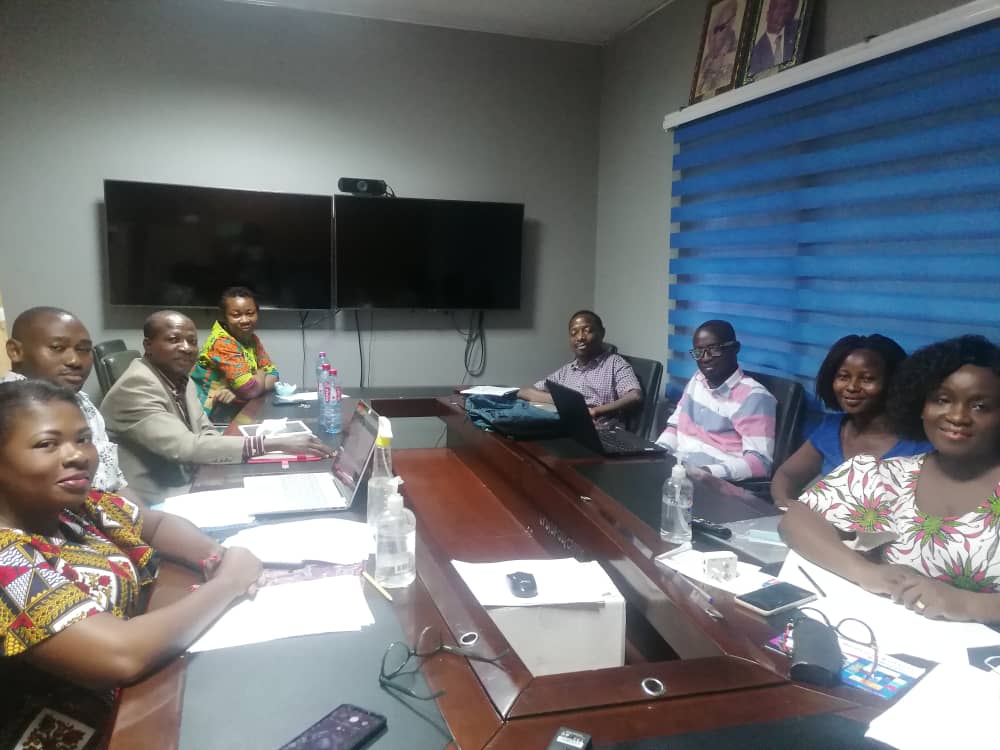
17 November 2021 │ Call for Papers
LICOT-WASO Edited Reader ‘Perspectives on disability and life course in West-African societies’
The LICOT-WASO team is preparing a reader on perspectives on disability and life course in West African societies. Interested authors are encouraged to submit abstracts for papers. For further information, please see the Call for Papers below.
11 November 2021 │ LICOT-WASO meets Siegen-based Graduate Programme ‘Consequences of Social Services Work’
This week, the LICOT-WASO team met the PhD fellows of the Graduate Programme ‘Consequences of Social Services Work’, a DFG-funded programme at the University of Siegen (www.folgensozialerhilfen.de/?lang=en). In a two-hour digital session, the fellows of both programmes exchanged about their research work and their experiences of completing a doctoral degree in a structured and thematically framed programme. In the course of the discussion, differences as well as several thematic and methodological intersections of individual doctoral projects became apparent. Both groups perceived the discussions as enriching and voted for a continuation of the exchange.
20 July 2021 │ ‘meet the research group’
Insights into the research activities of the LICOT-WASO team
We continue the ‘meet the research group’ series with Nora Mintah Darko. Nora is a PhD candidate from the Institute of African Studies at the University of Ghana. She is very passionate about knowledge production from the African perspective, and therefore mostly participating in learning and writing of works centered on Ghana and Africa as a whole. Currently, her research work centres on interrogating the sociocultural positioning of persons with disabilities in all spheres of their daily lives in order to bring to fore some narratives that have, are and will continue to shape Africans socialization globally.
Nora, your dissertation project is titled ‘An examination of the disability culture: Exploring the quality of life of persons with physical disabilities within families in two contrasting neighbourhoods in Accra, Ghana’. What exactly are you dealing with in your research?
In this study, I want to know what promotes the ideal family’s quality of life if a member has a disability. Highlighting how adults with paralysis undertake the multiple roles of parent, spouse, and employee; how do families welcome a child with paralysis into their homes; what perceptible steps might help families with persons with disabilities to capitalize on their individual and collective capabilities to cope, adjust, and thrive in spite of multiple challenges.
What is the relevance of life course theory for your work?
Life course theory is very important in my study. As an investigate tool, it aids in bringing out the total life experiences of persons with disabilities and the implications of integrating their normative and non-normative experiences into the Ghanaian culture which on one hand seems welcoming of all persons but on the other hand fears persons with disabilities.
What are you working on at the moment?
Currently I am working on my proposal presentation. I am reading more literature to ascertain the relevance of my study in the production of reliable and valid knowledge. Non-academically, I am conscious engaging people in discussions on disabilities in Ghana.
Thanks indeed Nora. We are very excited to get more insights into your work in the coming months.

24 June 2021 | LICOT-WASO team visits Ghana Federation of Disability Organisations (GFD)
The LICOT-WASO team met Madam Rita Kyeremeh Kusi, Executive Director of the Ghana Federation of Disability Organisations and further heads of disability organisations under the Federation. It was agreed that the LICOT-WASO programme will cooperate with various member organisations of the Federation. The LICOT-WASO doctoral students will have the opportunity to gain practical experience in the organisations as part of their dissertations and expand practice networks in their field of expertise.
12 June 2021 | Workshop on research integrity at House of Young Talents
In early June LICOT-WASO researchers joined another digital workshop of the House of Young Talents (HYT) at the University of Siegen. The workshop informed the team about important but often neglected topics around ‘rules of good scientific practice’ and discussed uncertainties that often persist among both beginners and experienced researchers in the areas of research practices, data management and literature administration.
As the postgraduate centre of the University of Siegen, the House of Young Talents is the central contact point for graduates of all qualification levels and faculties. The HYT supports junior researchers individually, strengthens their respective research activities and accompanies graduates on their career paths within academia or into non-university careers.
https://www.uni-siegen.de/hyt/start/index.html.en?lang=en
07 June 2021 │ ‘meet the research group’
Insights into the research activities of the LICOT-WASO team
We continue the ‘meet the research group’ series with Ayine Akolgo. Ayine is an emerging scholar, art enthusiast, critic, curator and disability rights activist with multifaceted abilities and resourcefulness for knowledge production and social transformation. He has an MPhil in African Studies and a BA in Sociology with Study of Religions, both from the University of Ghana. Currently, he is a second year PhD student at the Institute of African Studies, University of Ghana.
Ayine, your dissertation project is titled ‘Representing disability challenges and rights through literary and visual culture in domestic and public spaces.’ What exactly are you dealing with in your research?
I am researching on representing disability challenges and rights through literary and visual culture in domestic and public spaces. I explore the myths, proverbs and symbols that relate to physical disability and how they affect the development and lives of PWDs in the Upper East Region. I do this by profiling some of the iconic persons with disabilities in the contemporary African art landscape in the Upper East Region, in Ghana and the Sub-region, focusing on how their challenging transitions in development affect and reflect in their lives and works aesthetically, emotionally and thematically. Also of interest are the approaches, methodologies, media and technologies employed by artists with disabilities and others in the production, promotion and globalizing of their works. Finally, I explore how art does/can project the challenges persons with disabilities face while promoting their rights in a world of ‘ideals’, ‘perfections’ and ‘stereotypes.’
What is the relevance of life course theory for your work?
The life course theory provides the framework for analysing my work around its core concepts. Such concepts as institutionalized life course are useful in analysing the myths and practices as standardized normative patterns that frame societal expectations of individuals as benchmarks of a successful life. Transitions and trajectories play key role as they mark transformations in roles and statuses and will be useful in the biographical profiling of the lives and art of persons with disabilities. Other concepts such as life events, turning point, interdependency and human agency are usefully applied to my work.
What are you working on at the moment?
Currently, I am in earnest search and review of relevant literature while also polishing up my proposal in preparation towards our official departmental presentations in June.
Thank you very much Ayine. We are very excited to get more insights into your work in the coming months.
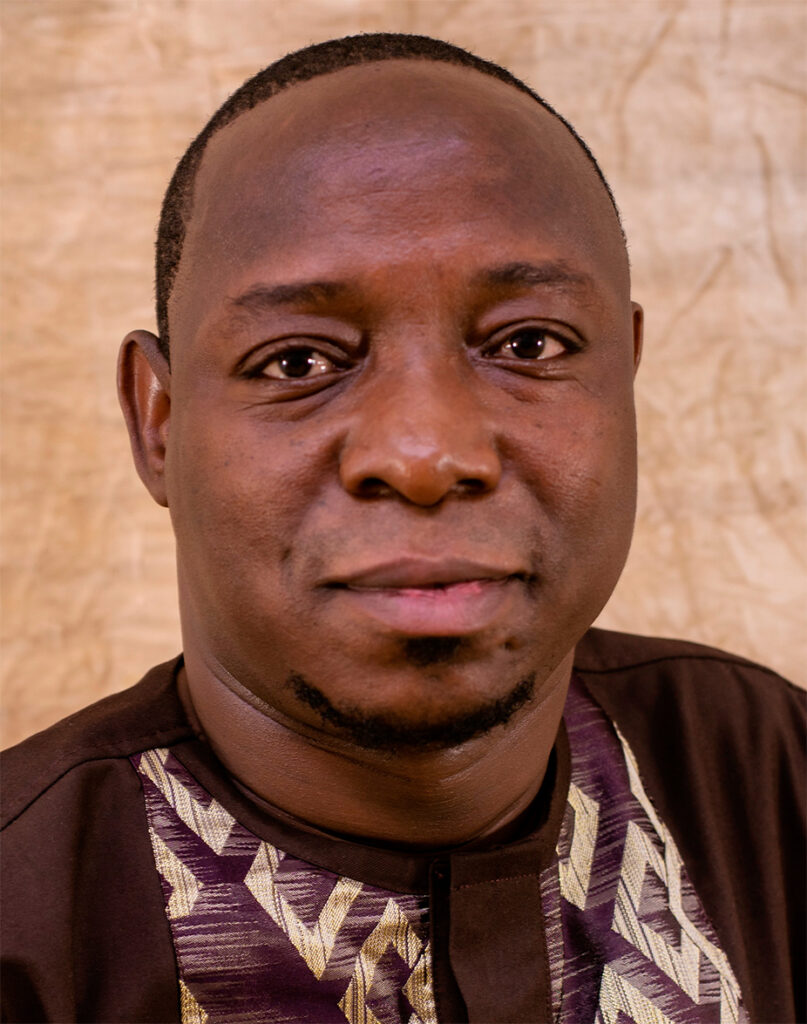
27 – 28 May 2021 | LICOT-WASO meets House of Young Talents
This week LICOT-WASO researchers joined the digital workshop ‘How to Design and Conduct PhD and Other Research Projects’ provided by the House of Young Talents (HYT) at the University of Siegen.
The two-day workshop aimed to condense a number of critical aspects many researchers find themselves struggling with at the beginning and in the course of a PhD project. These include, amongst others, the transfer of a research topic into an adequate research question, systematic literature review, operational planning and monitoring of a PhD project, time management, core aspects of scientific writing and publishing, and rules of good scientific practice.
The LICOT-WASO group greatly benefited from the professional input on the planning and implementation of a PhD project and valued the exchange opportunities with PhD students from various thematic areas.
As the postgraduate centre of the University of Siegen, the House of Young Talents is the central contact point for graduates of all qualification levels and faculties. The HYT supports junior researchers individually, strengthens their respective research activities and accompanies graduates on their career paths within academia or into non-university careers.
https://www.uni-siegen.de/hyt/start/index.html.en?lang=en
26 May 2021│ ‘meet the research group’
Insights into the research activities of the LICOT-WASO team
We continue the ‘meet the research group’ series with Dominic Hotor. Dominic is a doctoral researcher at the Department of Geography and Resource Development at the University of Ghana. He holds a B.Sc. and an MPhil in Geography, Planning and Development. His research areas and interests range from urban mobility, disability, urban transportation, and settlement planning to waste management and governance in Ghana.
Your dissertation project is titled ‘Accessibility and Use of Public Transport Services by Persons with Disabilities’. What exactly are you dealing with in your research?
I seek to explore the life courses of persons with disability regarding their mobility patterns and experiences with public transport services in the Ghanaian capital of Accra.
What is the specific relevance of life course theory for your work?
The life course theory framework inspires my dissertation where the transitions of persons with disabilities, e.g. from childhood to adulthood, are closely considered regarding their commuting experiences. This will be key in identifying their accessibility and use of public transport services across the various life phases as they pursue their various activity journeys. It will further allow to delve into the lives of persons with disabilities from particular cohorts and with specific trajectories to be able to paint a holistic picture of their encounters through their mobility journeys via public transport.
What are you working on at the moment?
I have successfully completed my comprehensive exam. I am currently developing my literature review alongside securing an experiential learning opportunity with a Non-Governmental Organization focused on persons with disabilities and development in Ghana.
Thank you very much Dominic. We are very excited to get more insights into your work in the coming months.

17 May 2021 │ ‘meet the research group’
Insights into the research activities of the LICOT-WASO team
We continue the ‘meet the research group’ series with Esmerlinda Korkor Ofoe. Korkor, is a PhD candidate at the Department of Adult Education and Human Resource Studies at the University of Ghana and part of the LICOT-WASO team. Her research interest is in learning across the life course, inclusive, assistive and tech education.
Korkor, your dissertation is titled “Analysis of Emerging Learning Technologies on Students with Disability in Pandemic”. What exactly are you dealing with in your research?
People with disabilities are often severely affected by emergency situations, unfortunately this is the situation with the ongoing COVID-19 pandemic. My research seeks to uncover inclusion and accessibility issues with online learning that pertains to the cohort of students with disabilities. I want to understand the lived experiences of students with hearing and visual impairments in this context. Also, I will delve into how the failure to mainstream online learning could constrain the academic performance of students with disabilities which could potentially lead to dropout. The utility of pragmatist paradigm to this study is not only aimed at solidifying the findings to make it generalizable, but to guide in constructing the variables to study. In addition, I plan to outline recommendations to higher education actors towards achieving inclusive online education.
What is the relevance of life course theory for your work and/or vice versa?
COVID-19 pandemic has deepened existing inequalities, therefore contextualizing life course theory to students with disabilities’ learning in the COVID-19 pandemic will not only bring to bare the exclusion that adult learners are experiencing. But also make significant contribution to understanding how this socio historical life event and the transition to online learning could enact the educational and career trajectories of these learners.
What are you working on at the moment?
In addition to preparing to defend my proposal which is scheduled for early June, I am currently working on my literature review.
Thank you very much Korkor. We are very excited to get more insights into your work in the coming months.

10 May 2021 │ ‘meet the research group’
Insights into the research activities of the LICOT-WASO team
We continue the ‘meet the research group’ series with James Kwabena Bomfeh Jnr. Kwabena is a research student at the University of Cape Coast, Ghana. His work focus is on disability and leadership. The research interest is foregrounded in cultural background to concepts and lived experiences of leaders with disabilities. Earlier studies in the fields of Education, Computer Science, Law and Political Science with partisan political engagement of some two decades along paid work in private and public sectors reflect diversity in him.
Your dissertation project is titled ‘Persons with Disability and Leadership: Exploring Notions, Norms, Customs and Practices of Selected Cases in Ghana’. What exactly are you dealing with in your research?
This work focuses on bringing out the cultural constructions of disability and leadership in Ghana on one hand. It also seeks to share in the experiences of persons with disabilities either in pursuit or positions of leadership. Ultimately, it aims at contributing to the attainment of the inclusive agenda of the Sustainable Development Goals.
What is the relevance of life course theory for your work?
Life Course Theory permeates cultures and is induced in the lived experiences of persons with disabilities. Conversely, both cultures and lived experiences of persons with disabilities correlate to the concepts of Life Course Theory namely trajectories, transitions, turning points and cohorts. Exploring of cultures and narration of disabled lives both employ the principles of time and place, life span development, timing, agency and linked lives.
What are you working on at the moment?
At the moment, data collected and transcribed are being processed in discussion for results, analysis and findings.
Thank you very much Kwabena. We are very excited to get more insights into your work in the coming months.
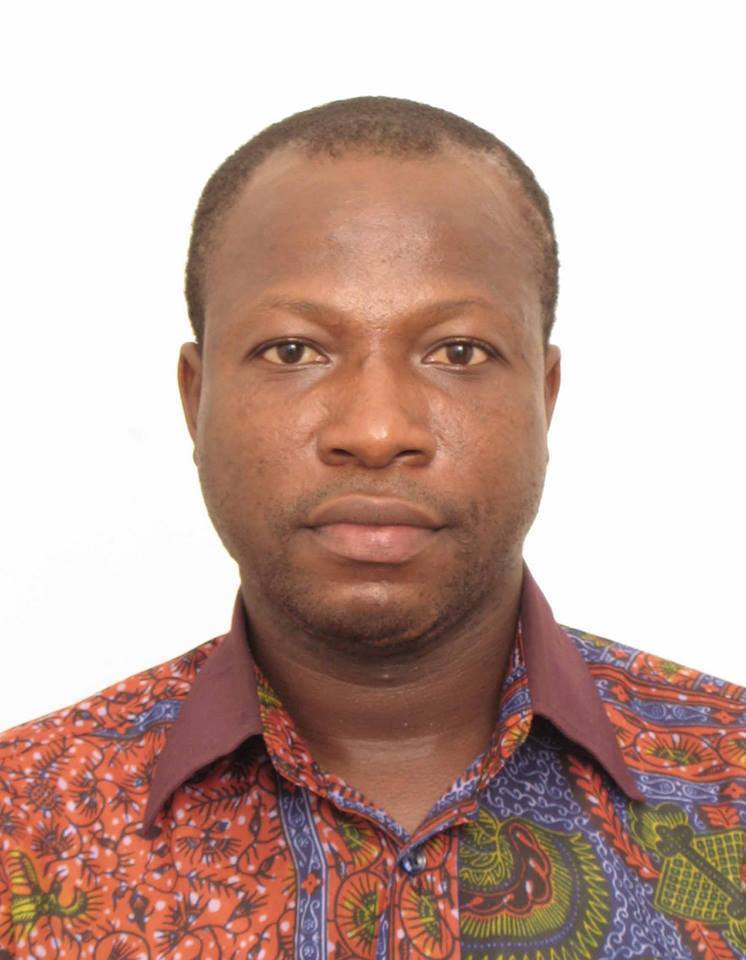
03 May 2021 │ ‘meet the research group’
Insights into the research activities of the LICOT-WASO team
We start the series ‘meet the research group’ with Esther Kalua Atujona. Esther is part of the LICOT-WASO team and PhD candidate at the Regional Institute for Population Studies, University of Ghana. She is also a graduate assistant at the Institute of African Studies at the same University. Her research interest is in the areas of disability, gender, and reproductive health.
Esther, your dissertation is titled “Gender and Sexuality over the Life Course of Persons with Disabilities”. What exactly are you dealing with in your research?
I look at gender and sexuality over the life course with a particular focus on women with physical disabilities. More specifically, I seek to understand the experiences of women with disabilities with regard to their sexuality and sexual health over the life course. I want to develop a deeper understanding and produce qualitative evidence on the challenges that women with disabilities in Ghana face in accessing sexual and reproductive health services, and how they individually develop and apply coping strategies to address these challenges.
What is the relevance of life course theory for your work?
The life course theory framework will assist to better understand essential aspects of gendered sexuality that unfolds across the entire life course. These include, for example, issues related to sexual agency, assertiveness in intimate relationships, etc.
What are you working on at the moment?
I am currently in the process of reviewing the relevant literature and synthesizing the themes and concepts around the topic in a meaningful way.
Thank you very much Esther. We are very excited to get more insights into your work in the coming months.

The ‘meet the research group’ section will accompany the LICOT-WASO research efforts and provide insights into the researchers’ activities on a recurring basis in the coming months.
08 April 2021 | quarterly team workshop
The LICOT-WASO research team came together for a virtual one-day team event. After a welcome address by Prof. George Owusu, Dean of School of Social Sciences at the University of Ghana, Prof. Charles Ackah introduced the group to the typical journey and stages towards a doctoral degree at the University of Ghana. Prof. Johannes Schädler (University of Siegen) gave a comprehensive lecture on research traditions and key terms of life course theory. Updates on the nature, scope and structure of the LICOT-WASO programme were shared by Dr Saka Manful, Dr Efua Esaaba Mantey Agyire-Tettey and Lars Wissenbach from the coordinating team followed by individual presentations of LICOT-WASO PHD researchers on the status of their work and next steps of their dissertation projects.
11 March 2021 │ kick-off workshop
The project team has now been assembled and will begin its work in March. At the kick-off event on March 11, the project team and the scientific advisory board will be officially welcomed. Eight LICOT-WASO PhD students will present their research projects.
